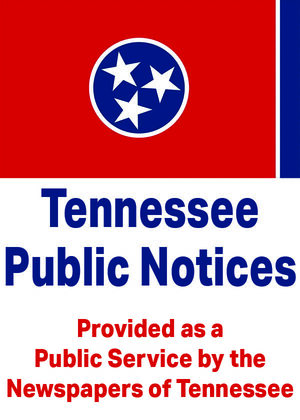Senator Joey Hensley, MD
2023 Session of the 113th General Assembly
June 8, 2023
The 113th General Assembly has adjourned for 2023, and it was a very successful year. We have taken measures for Tennessee to be a better place to live, work and to raise a family. I will go over the laws passed this session.
Updating Tennessee’s 2021 Literacy Success Act – In 2021, the General Assembly passed Tennessee’s Literacy Success Act to improve literacy rates and get students on track in early grades so they can become proficient readers by third grade. This year lawmakers updated this law to allow additional data to be considered to determine if a student is ready to advance to fourth grade. The new law also provides more resources to help students as they learn to read.
The law allows school districts to advance students to fourth grade by using an additional reading screener test provided by the Department of Education, to more accurately assess reading levels for students who might be poor test takers. In order to advance to fourth grade, students who score in the “approaching” category on their third grade Tennessee Comprehensive Assessment Program (TCAP) test and score in the 50th percentile on the third-grade reading screener test must complete summer school or tutoring in fourth grade. Students who score in the “below basic” category must complete both summer school and tutoring in 4th grade in order to advance.
The bill allows school districts to assist parents when filing an appeal if their student is identified for retention. The bill requires the Department of Education to provide a comprehensive report to the General Assembly on the number of students identified for retention, the interventions given to those students and the number of students promoted based on those interventions.
The bill ensures students held back before third grade get reading intervention to catch them up and allows the Department of Education to contract up to three additional online tutoring providers to meet the needs of students. The bill also provides additional tutoring to school districts in first and second grades.
Permanently establishing learning camps - The General Assembly indefinitely extended summer and after-school learning camps that were implemented on a temporary basis during the COVID-19 pandemic. In the summers following the 2020-2021 and 2021-2022 school years, all school districts in the state were required to offer in-person learning loss remediation and student acceleration programs, including summer learning camps, after-school learning mini camps and learning loss bridge camps. These programs have been a success: in the summer of 2021 over 121,000 students participated with an attendance rate of 96%. In the summer of 2022, over 90,000 students participated in the summer camps. Furthermore, students statewide improved in English language arts and math after attending the summer camps. This new law will continue the successful track record of these camps by making them permanent.
Expanding ESA eligibility - This law expands student eligibility for the state’s education savings account (ESA) to include students who would have been otherwise eligible for the program if the courts had not enjoined it after passage in 2019. It expands student eligibility in the ESA program to include students who were not enrolled, and who did not attend, a Tennessee public school for the one full school year immediately preceding the school year for which the student receives an ESA, but who were enrolled in, and who attended, a Tennessee public school in the 2019-20, 2020-21 or 2021-22 school year. It also includes students who are not eligible, for the first time, to enroll in a Tennessee public school, but who were eligible, for the first time, to enroll in a Tennessee public school in the 2019-20, 2020-21 or 2021-22 school year.
Raising awareness of the Individualized Education Account program - This new law requires the Department of Education to create a process to notify parents of all children eligible to participate in the Individualized Education Account (IEA) program as opposed to only lower income families. The IEA program is a school choice program for eligible students with disabilities. It gives parents and students access to public education funds to use on certain types of approved educational expenses that best meet their own unique needs.
Keeping inappropriate material out of public schools – In an effort to prevent inappropriate materials from entering a K-12 public school, the General Assembly passed a law to create a Class E felony offense for book publishers, distributors, or sellers that knowingly sell or distribute obscene material to a public school. Last year, the General Assembly passed several bills aimed at removing and blocking obscene or inappropriate materials on school computers and in school classrooms and libraries. This law builds on those efforts.
Updating the Age-Appropriate Materials Act of 2022 - Last year, the General Assembly passed the Age-Appropriate Materials Act of 2022, which increased transparency and oversight of instructional materials and literature used in public schools. If a school finds a material is not age-appropriate based on student, parent or employee feedback, then the school can remove the book by appealing to the local school board or charter school governing body. This new law adds an additional step to the process of evaluating materials in school libraries. The bill requires complaints to first go to the local school district for resolution prior to going to the local board of education for review.
Strengthening protections against divisive concepts - This law allows any student or employee of a public university to file a report of an alleged violation of the state’s divisive concepts law. It also requires the institution to investigate the report and take appropriate steps to correct any violation that is found to have occurred. Divisive concepts are those that exacerbate and inflame divisions on the basis of sex, race, ethnicity, religion, color, national origin and other criteria in ways that are contrary to the unity of the United States of America and the well-being of Tennessee and its citizens. Violations of the law and any corrective actions taken must be reported annually to the Comptroller’s Office of Research and Education Accountability. Additionally, the bill requires peaceful and lawful usage of the university’s facilities and requires them to be open to all recognized student groups. Student-invited guest speakers may also not be denied based solely on race, religion or nonviolent political ideology. A university may still deny obscene demonstrations or gatherings.
Contact Senator Hensley at
425 5th Avenue North, Suite 746
Nashville TN 37243
615-741-3100
Toll Free 1-800-449-8366
ext. 13100
Fax 615-253-0231
855 Summertown Highway
Hohenwald TN 38462
Phone 931-796-2018
Cell Phone 931-212-8823
E-mail:








Reader Comments(0)